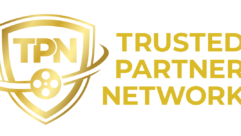PUMPKINS INTO GOLD
Apr 1, 2001 12:00 PM,
Alan Kruglak
Selling service agreements will not only improve cash flow andincrease profitability, but will also increase the market value ofthe company.
ONE OF MY DAUGHTER’S FAVORITE bedtime stories is the classicfairy tale, Cinderella. For most of Cinderella’s life, sheis unwanted, disrespected and relegated to doing every menial taskimaginable while her stepsisters live the good life. She is trulyforgotten until she emerges from her shell. With the help of herfairy godmother, she is not only remembered, but she takes centerstage: the classic happy ending.
The plight of Cinderella is similar to the situation withservice agreements. For many systems integrators, serviceagreements are one of the most forgotten and disrespected sourcesof revenue. Many integrators will say that the revenue from serviceagreements is too small to make much of a difference. Anothercommon refrain is, “Who has time to sell service agreements?We’re making too much money on installations to worry aboutthem.” Little do they know that long-term benefits of sellingservice agreements will not only significantly improve cash flowand increase profitability, but it will also increase the marketvalue of their company.
HOW YOU CAN GET TO THE BALL
If you want to begin selling service agreements, or to beginselling them more aggressively, what do you do first? Althoughthere are a number of steps you need to take, one of the first isto modify your Sales Compensation Plan. The same process that givesreps the incentive to sell products and systems applies equally toselling service agreements.
At my former company, we established two objectives in our SCPfor selling service agreements:
- Reward reps for selling service agreements.
- Provide greater rewards for selling longer-term contracts.
We structured our compensation plan to achieve these objectivesas shown in Table 1.
This graduated commission scale made it clear to our reps thatwe wanted longer-term agreements. And guess what. With thecommission scale, more than 85% of our service agreements werethree years or longer, with more than half covering 5-year terms.We achieved our goal largely by designing a compensation plan thattold our sales reps to sell long-term agreements.
There are two major lessons to be learned from our experience.First, if you want your sales reps to sell service agreements, givethem an incentive. Second, if you want them to sell long-termagreements, increase the size of the commission in accordance withthe length of the contract.
ROLE OF THE SERVICE DEPARTMENT
One question about service agreements is whether they should besold exclusively or at all through the service department; and ifso, should the service department be compensated accordingly?
There are two schools of thought about compensating employeesoutside the sales channel. We believed that any products orservices sold by our company should fall under the purview of thesales department. Consider the following example.
Table 1. Commission Schedule For Service AgreementSales.
In the Washington, D.C., area, one service company had itstechnicians selling service agreements. They’d go out to homes,tell the customers they had a major problem with their fan motor(which they didn’t), and give them an inflated price tag of around$600 to make repairs. Then they would tell clients that if theypurchased a service agreement on the spot for $400, everythingwould be covered at no charge. Eventually, this company’s tacticswere exposed, and they were shut down.
The point is that having the service department sell serviceagreements creates a conflict of interest. The service department’smission is to provide fast, efficient, honest service.Selling service agreements not only distracts them from thatmission, it casts a shadow on your technicians’ (and company’s)integrity from the customers’ point of view.
This doesn’t mean you don’t reward technicians for performingwell. If a technician is efficient and/or promotes (ratherthan sells) additional services and products to the client, you canuse discretionary bonuses as a reward mechanism.
On the other side of the argument, some companies believe inrewarding technicians for selling additional services and/orproducts. If you decide to reward technicians for selling productsand services, there are some strict rules to follow. First, theyshould only sell products and/or services that can be easily pricedfrom a pre-established list. Second, all contracts should be thesame, such as a 3- or 5-year term with no field modificationsallowable.
If you decide to let technicians sell, it’s a good idea to paythe territory sales rep a 1% commission. If you believe theassigned territory is a critical component of the SCP, then youhave no choice but to respect your sales team’s ownership ofit.
There are many steps to the successful selling of serviceagreements. Though at first the revenue from service agreements mayseem negligible, the long-term results will be the same as theywere for Cinderella. You’ll be invited to the ball by the princeand have good cash flow — forever after.
This is an excerpt from Alan Kruglak’s new book, SalesCompensation, The Hunter-Farmer Way. The book provides astep-by-step approach to designing a sales compensation plan andincludes sample plans on diskette. The author is the former ownerof GIC, one of the most profitable systems integration firms in thecountry, sold to Sensormatic Electronics Corporation in 1995. Formore information, you can reach Kruglak at 301/365-7522 or [email protected].
Q&A: Renewals and Recurring Revenue
What was your percent commission on contract renewals?
We believed in the sanctity of the territory and thatcommissions should be paid on all revenue generated from aterritory. However, on renewals we reduced our commission rate to a1% override.
Most annual contracts include automatic-increase clauses forinflation or other reasons. Did you pay sales reps on theseincreases?
We paid our reps commission on all increases because the costwas negligible (1% commission of sales on renewals).
Should recurring revenue be incorporated into a sales rep’squota?
Absolutely! A separate line item in the quota should beestablished for new recurring-revenue contracts. In the same manneras for other orders, once this threshold has been met, a quotaaccelerator (i.e., an additional economic incentive) should kick inon all incremental recurring-revenue orders. Our quota acceleratorwas an additional 1% commission on all revenue exceeding thequota.










